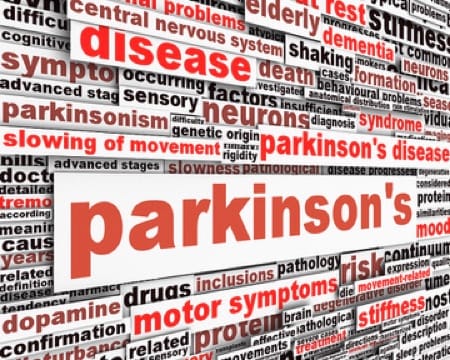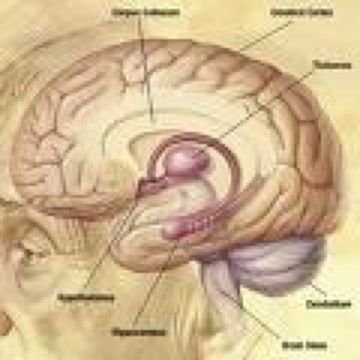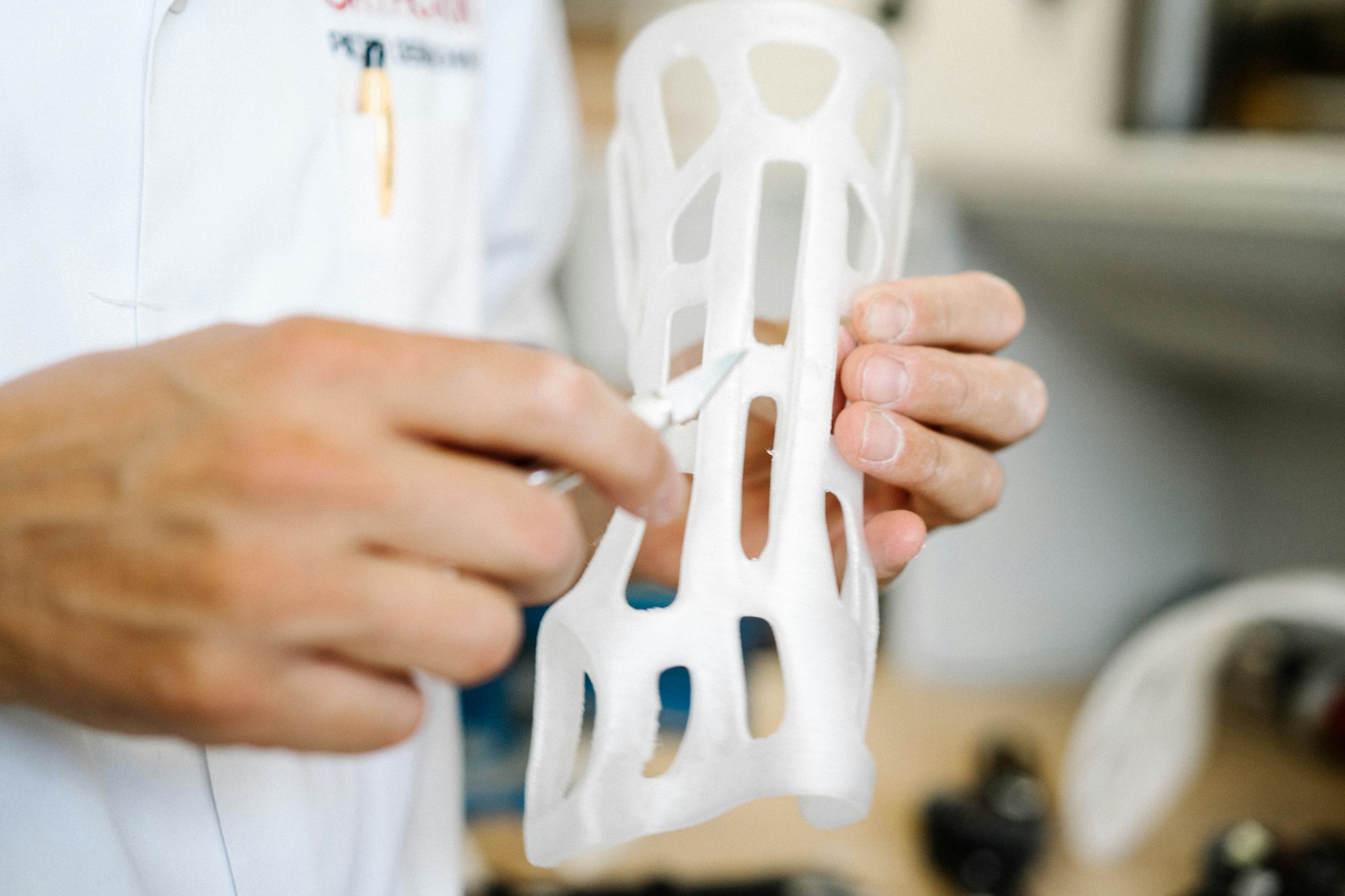Understanding Tremor in Hands: Treatment Causes, Symptoms, Diagnosis and Treatment
Hand tremors can result from stress, fatigue, or neurological conditions. Natural remedies like stress reduction, proper nutrition, regular exercise, and avoiding stimulants may help. Understanding the root cause is key to finding effective relief.

Have you ever experienced your hands shaking involuntarily, making it difficult to perform everyday tasks? You’re not alone. Hand tremors are a common issue that can be caused by various factors, including neurological disorders. In this blog post, we’ll explore the different types of hand tremors, their causes, symptoms, and diagnosis, as well as the tremor in hands treatment options available to help you regain control over your movements. Essential tremor is the most common type of tremor and is categorized among the most common movement disorders.
Key Takeaways
- Hand tremors can be caused by various factors and have different types, such as essential tremor & Parkinsonian tremor.
- Treatment options include lifestyle modifications, medications and surgical treatments like deep brain stimulation.
- Recognizing the connection between hand tremors and other neurological disorders is key to getting the right treatment.
Understanding Hand Tremors

Hand tremors are involuntary shaking or trembling movements that often affect the hands and can interfere with daily tasks. They can be caused by various neurological disorders, including essential tremor, Parkinson’s disease, and other movement disorders. Essential tremor, also called benign essential tremor, is the most common type of tremor and the most common movement disorder, often manifesting as head and voice tremors as well.
Tremors can be classified into two main categories: rest and action tremors. Rest tremors occur when the affected body part is at rest, while action tremors occur during voluntary movements.
We will now examine the various types of hand tremors, their origins, as well as methods for diagnosis and treatment.
What are Hand Tremors?
Hand tremors, also known simply as tremors, are involuntary muscle contractions that cause shaking or trembling movements in various parts of the body, most commonly in the hands. These movements can be rhythmic or irregular and may be accompanied by other symptoms such as muscle weakness, stiffness, or numbness. While hand tremors can be a normal response to stress, fatigue, or certain medications, they can also indicate an underlying medical condition, such as Parkinson’s disease, multiple sclerosis, or essential tremor.
Hand tremors can be classified into different types, including:
- Resting tremors: These occur when the hands are at rest and may be more pronounced when the hands are in a relaxed position.
- Action tremors: These occur when the hands are in use, such as when writing, eating, or performing other activities.
- Intention tremors: These occur when the hands are intentionally moved, such as when reaching for an object.
The causes of hand tremors are varied and can include:
- Neurological conditions: Such as Parkinson’s disease, multiple sclerosis, and essential tremor.
- Medications: Including those used to treat depression, anxiety, and high blood pressure.
- Traumatic brain injury: Which can disrupt normal brain function and lead to tremors.
- Stroke: Which can damage areas of the brain responsible for movement control.
- Infections: Such as Lyme disease, which can affect the nervous system.
- Nutritional deficiencies: Such as vitamin B12 deficiency, which is essential for healthy neurological function.
Understanding the type and cause of hand tremors is crucial for determining the most effective treatment approach.
Essential tremor
Essential tremor, the most common type of hand tremor, is a movement disorder and one of the most common movement disorders overall. It causes shaking during voluntary movements, often affecting both hands and arms. People with essential tremor may experience symptoms of essential tremor, such as shaking or trembling of the hands that can worsen over time, affecting activities like writing, eating, and self-care.
To diagnose essential tremor based on the patient’s medical and family history, one must observe specific symptoms and perform physical and neurological examinations. Once essential tremor diagnosed, it’s important to note that genetic factors may play a role in causing essential tremors. It can even affect multiple generations of the same family. Stress, caffeine, and other factors can also make tremors worse.
Parkinsonian tremor
Parkinsonian tremor is an involuntary rhythmic shaking or slight movement that is usually the first symptom of Parkinson's disease. Unlike essential tremor, which can be a familial tremor, Parkinsonian tremor typically affects the limbs, face, and legs, and is more obvious when the body is at rest, as opposed to a kinetic tremor that occurs during voluntary movement. In this context, it is important to differentiate between Parkinson's disease, postural tremor, and other tremor-related conditions.
The distinctive symptoms of Parkinsonian tremor, when compared to essential tremor, can help healthcare professionals differentiate between the two conditions and provide an accurate diagnosis. Certain factors, like stress or caffeine, can also make Parkinsonian tremors worse.
Dystonic tremor
Dystonic tremor is a movement disorder characterized by:
- Involuntary muscle contractions
- Repetitive or twisting movements
- Usually seen in the neck, vocal cords, or arms/legs, with some individuals experiencing torso shaky voice difficulty
- Can be suppressed by sensory tricks
- Sometimes has null points, which are body positions with no tremor.
Botulinum neurotoxin and surgery have been found to be more effective than drugs, especially for patients with severe dystonic tremors that get worse over time. Like essential and Parkinsonian tremors, stress and caffeine can exacerbate dystonic tremors.
Other types of tremor
Various other types of tremors exist, including:
- Cerebellar tremor: caused by damage to the cerebellum and usually results in slow, jerky movements in the hands and arms
- Functional tremor: not caused by a neurological disorder and may be triggered by psychological factors
- Enhanced physiologic tremor: occurs in response to certain medications, caffeine, or stress
- Orthostatic tremor: characterized by rapid shaking of the legs when standing
Each type of tremor has unique characteristics and causes.
Functional tremor, on the other hand, can manifest as any type of tremor and typically starts suddenly and changes frequently. The tremor can worsen when the person is focused but may subside when they're distracted. Like other tremor types, stress and caffeine can worsen these tremors.
Causes of Hand Tremors

Hand tremors can be caused by various factors, including:
- Problems in brain control
- Genetic factors
- Environmental factors
- Other medical conditions
While older adults are more likely to experience hand tremors, they can occur at any age and may be influenced by a family history of tremors.
A few factors that can contribute to hand tremors include:
- Stress
- Caffeine
- Certain medications
- Underlying medical conditions such as Parkinson's disease or dystonia
Identifying the particular cause of hand tremors is pivotal in deciding on the correct treatment approach.
Symptoms of Hand Tremors

Common symptoms of hand tremors may include:
- Shaking or trembling of the hands
- Worsening over time
- Affecting daily activities like writing, eating, and self-care
- Making it increasingly difficult to perform everyday tasks
- Impacting an individual's independence and quality of life.
Being conscious of hand tremor symptoms and seeking medical advice if a persistent or aggravating shaking is noticed in your hands is vital. Early diagnosis and intervention can help manage symptoms and improve overall well-being.
Diagnosing Hand Tremors

Diagnosing hand tremors involves a thorough evaluation of the patient's medical and family history, as well as their specific symptoms. Both physical and neurological examinations are vital for detecting the existence of hand tremors and assessing their severity.
Additional tests, such as muscle and nerve tests or diagnostic imaging, may be conducted to rule out contributing factors and identify the specific type of hand tremor. Accurate diagnosis is crucial in determining the most appropriate treatment plan for the individual.
Treatment Options for Hand Tremors

Treatment options for hand tremors depend on the specific type and severity of the tremor. These options include lifestyle modifications, medications, and surgical treatments. Some individuals with mild symptoms may not require treatment, while others with more severe tremors may need a combination of interventions to manage their symptoms effectively.
We will now discuss diverse treatment methods such as lifestyle changes, medications, and surgical treatments to give you a clearer understanding of how essential tremor treated with existing options can help manage hand tremors.
Lifestyle modifications
Reducing caffeine intake, managing stress, and engaging in physical therapy can help manage hand tremor symptoms. Using a stress ball can be an effective exercise for reducing hand tremors by improving hand strength and control. Cutting down on caffeine can help lessen the intensity of the tremors, while managing stress levels can reduce their severity.
Physical therapy, including hand and wrist exercises, can help improve coordination and lessen the severity of hand tremors. Adopting these lifestyle modifications can significantly improve the quality of life for individuals with hand tremors.
Medications
Various medications can help reduce hand tremors in some cases, including beta-blockers, anticonvulsants, and anticholinergics. Examples of these medications include benzodiazepines like clonazepam (Klonopin), gabapentin (Neurontin), β-blockers like propranolol, and primidone.
Consultation with a healthcare professional to ascertain the most suitable medication for your specific type of hand tremor is of significant importance. They can help assess the potential benefits and side effects, ensuring that the chosen medication is safe and effective.
Surgical treatments
In severe cases, surgical treatments such as deep brain stimulation may be considered. Deep brain stimulation involves implanting electrodes in the brain to help control tremor symptoms. This surgical procedure has been shown to reduce tremor symptoms, enhance movement, and boost the quality of life for individuals with hand tremors.
Another surgical option is focused ultrasound thalamotomy, a minimally invasive procedure that uses ultrasound waves to target and destroy certain areas of the brain. Both deep brain stimulation and focused ultrasound thalamotomy can be effective in managing severe hand tremors when medications and lifestyle modifications are not sufficient.
Deep Brain Stimulation for Hand Tremors

Deep brain stimulation (DBS) is a surgical treatment option for severe hand tremors. The procedure involves implanting electrodes in the brain to stimulate certain areas responsible for body movement, similar to how a pacemaker sends signals to the heart. By doing so, it measures involuntary muscle activity, helping to control the tremors.
The benefits of deep brain stimulation include reduced tremor symptoms, improved motor control, and a decreased need for medications and their side effects. If other treatments have not provided sufficient relief, deep brain stimulation may be a viable option for individuals with severe hand tremors.
Alternative Therapies for Hand Tremors

Some patients may find relief from hand tremors through alternative therapies such as acupuncture, biofeedback, or relaxation techniques. These therapies can help improve quality of life, reduce stress, and provide better mobility for individuals with hand tremors.
Before trying alternative therapies, it's vital to consult with a healthcare professional, considering potential side effects, interactions with other medications, or the chance that symptoms could exacerbate and become life threatening. Always consider the potential risks and benefits of any therapy before incorporating it into your treatment plan.
Managing Daily Life with Hand Tremors

Adaptive devices and strategies can help individuals with hand tremors maintain independence and perform daily tasks more easily. Weighted utensils can help reduce the effects of hand tremors during meals, while active cancelation of tremor technology uses sensors to detect and cancel out hand tremors.
Inclusion of these adaptive devices and strategies into daily life can assist individuals with hand tremors in managing their symptoms more effectively and maintaining an enhanced quality of life. Remember to consult with a healthcare professional to determine the most appropriate adaptive devices and strategies for your specific needs.
Preventing Hand Tremors

While there is no surefire way to prevent hand tremors, maintaining a healthy lifestyle and addressing underlying medical conditions may help reduce the risk. This includes:
- Eating a balanced diet
- Exercising regularly
- Limiting alcohol intake
- Avoiding stimulants like caffeine and amphetamines.
Active efforts to maintain a healthy lifestyle and seek medical advice for any worrisome symptoms can help mitigate the risk of developing hand tremors. Early intervention can help manage symptoms and improve overall well-being.
When to Seek Medical Attention
If you are experiencing hand tremors, it is essential to seek medical attention if:
- The tremors are severe or persistent.
- The tremors are interfering with your daily activities.
- You are experiencing other symptoms, such as muscle weakness, stiffness, or numbness.
- You have a family history of neurological conditions, such as Parkinson’s disease or essential tremor.
- You have recently started taking a new medication.
A healthcare professional can help determine the underlying cause of your hand tremors and recommend appropriate treatment. In some cases, hand tremors may be a symptom of an underlying medical condition that requires prompt attention.
Treatment options for hand tremors may include:
- Medications: Such as beta blockers, anticonvulsants, and benzodiazepines, which can help reduce tremor symptoms.
- Physical or occupational therapy: To improve hand function and coordination through targeted exercises and techniques.
- Deep brain stimulation: A surgical procedure that involves implanting an electrode in the brain to stimulate nerve cells and control tremors.
- Relaxation techniques: Such as meditation, yoga, and deep breathing exercises, which can help manage stress and reduce tremor severity.
- Lifestyle changes: Including reducing stress, getting regular exercise, and improving sleep habits, which can all contribute to better management of hand tremors.
It is essential to seek medical attention if you are experiencing hand tremors to determine the underlying cause and develop an effective treatment plan. Early diagnosis and intervention can significantly improve your quality of life and help manage the symptoms of hand tremors.
The Connection Between Hand Tremors and Other Neurological Disorders

Hand tremors can be a symptom of various neurological disorders, including Parkinson's disease and dystonia, and may also be associated with an increased risk of developing these conditions. Recognizing the connection between hand tremors and other neurological disorders is crucial in determining the appropriate treatment and management plan.
Timely diagnosis and intervention can assist in managing hand tremor symptoms and lessen the possibility of developing further neurological conditions. It's essential to consult with a healthcare professional if you experience persistent or worsening hand tremors to ensure proper diagnosis and treatment.
Summary
In conclusion, hand tremors can significantly impact daily life and result from various causes, including neurological disorders. Understanding the different types of hand tremors, their symptoms, and available treatment options is essential in managing these involuntary movements. While there is no guaranteed way to prevent hand tremors, maintaining a healthy lifestyle and addressing underlying medical conditions can help reduce the risk. Early intervention, adaptive devices, and appropriate medical treatments can improve the quality of life for individuals with hand tremors.
Frequently Asked Questions
What is the best treatment for hand tremors?
The best treatment for hand tremors is often medication, such as beta-blockers like propranolol, anti-seizure medications such as primidone, and drugs used to treat epilepsy and migraine, like gabapentin and topiramate.
How do you stop hand tremors naturally?
To stop hand tremors naturally, avoid caffeine, use alcohol sparingly, learn to relax, and make lifestyle changes. Staying hydrated by drinking four to six cups of water daily can also help flush out toxins that may be causing tremors.
What vitamin is good for hand tremors?
Vitamin B12 is essential for healthy neurological functioning and insufficiency of this vitamin can lead to hand tremors. Eating meat, milk, eggs, and other animal products can ensure an adequate supply of this vitamin. Additionally, getting enough sleep each night can also help in preventing tremors.
What are the three types of tremors?
The three types of tremors are essential tremor, dystonic tremor, and Parkinson's tremor. These types of tremor differ in terms of frequency, amplitude, location, and treatment methods.
How are hand tremors diagnosed?
Hand tremors are typically diagnosed through a comprehensive evaluation that includes a review of medical and family history, physical and neurological examinations, and additional tests such as muscle and nerve tests or imaging.
Our Resources section can help you find the information and tools that you need. We have courses, videos, checklists, guidebooks, cheat sheets, how-to guides and more.
You can get started by clicking on the link below. We know that taking care of a loved one is hard work, but with our help you can get the support that you need.
Click here to go to Resources Section now!





